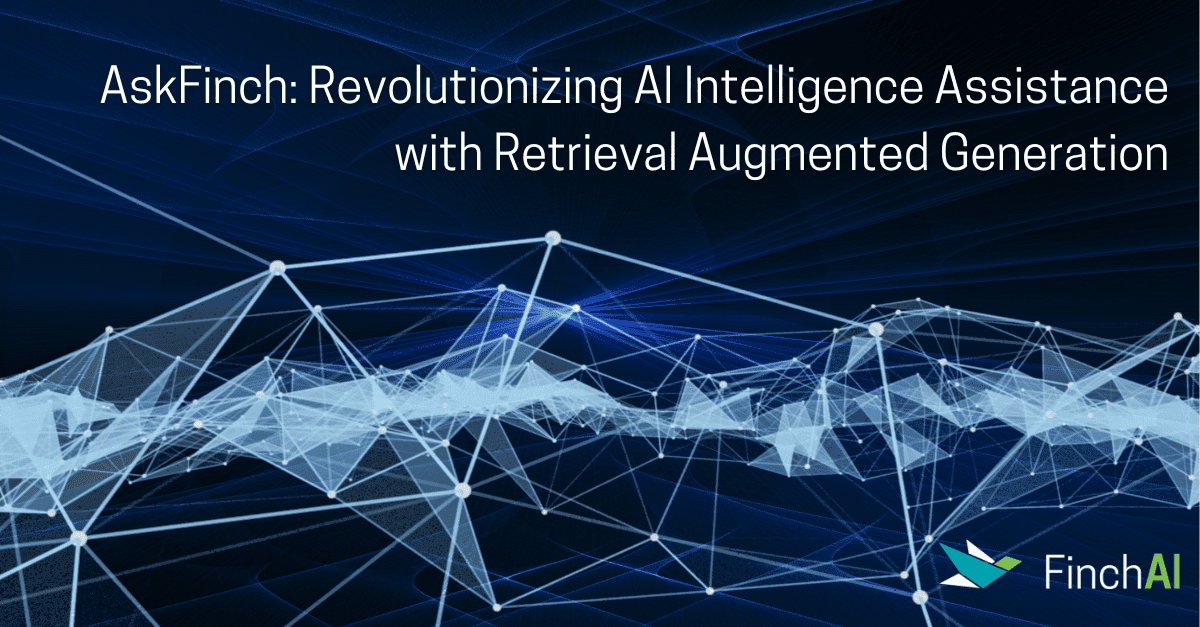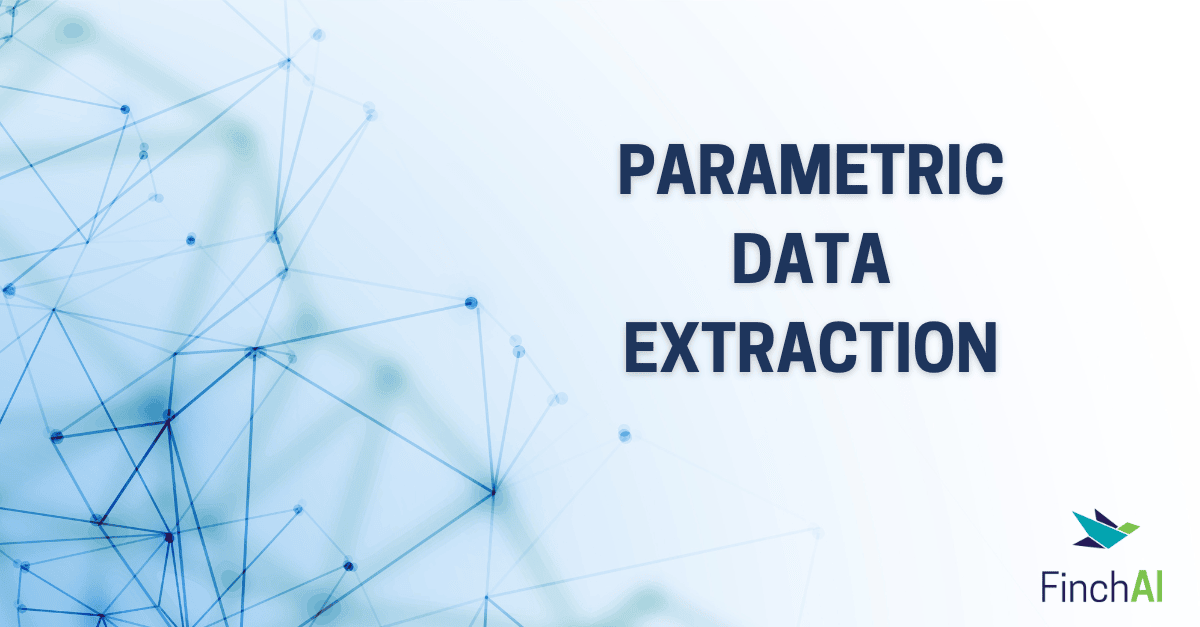Responsible AI
At Finch, we believe responsible AI is better AI. Developing responsibly is more important than ever.
With the rise of generative AI models, the range of potential model behaviors has grown exponentially. So has the subjectivity of erroneous or problematic outputs. Our commitment to trust and transparency go hand-in-hand with our ability to proactively imagine, experimentally test, and engineer guardrails against unwanted or harmful behaviors.
Responsible AI is about meeting opacity and misunderstanding with transparency, comprehensibility and collaboration that, together, build trust.
Finch AI’s Framework for Responsible AI

Avoiding Misconceptions
A throughline across all of our work is responsibility. That’s important because there are many misconceptions and fundamental misunderstandings about what AI is, what it does, and whether or not it should be entrusted to assist humans in making critical decisions that impact our daily lives.
This is why we make it standard practice to educate customers on the breadth of use cases that can be solved using our AI alongside an assessment of potential risks and what can be done to mitigate them.
Trustworthy Source Data
We begin projects with an eye on the traceability and trustworthiness of our source data. We actively research and include features for explainable AI, model disgorgement, and watermarking of AI-generated content within our platform.


Constant Testing
As a matter of practice, we train, evaluate, refine, and deploy our AI models – we then keep training, keep evaluating and keep refining them so that we can ensure the utmost accuracy and performance. This attention to precision helps us measure and improve the veracity and trustworthiness of our outputs. We mitigate the risk of model hallucinations by ensuring high-quality standards in our data curation, and transparently showing evidence to back a model’s claims or assertions. All of these efforts are complemented by executing rigorous quality control at all stages of the data and product lifecycles, including the curation of our training data; enforcing governance measures such as guardrails and model monitoring; providing model explainability where possible; and embedding our policies in responsible AI both upstream and downstream in the product development chain. We employ use case-specific testing that ensures that our outputs align with specific customer domain expectations. Our customers tell us responsible AI is evident in our models and our software products, and they appreciate our team’s careful attention to it. Which is the best possible outcome – because responsible AI is inherently better AI.
Mitigating Bias
Finch AI is strongly committed to mitigating bias and upholding responsible AI practices through a multi-faceted approach to bias detection and analysis. The company employs a range of sophisticated AI and machine learning techniques to identify and quantify potential biases or undue emphasis within data sources.
These techniques include:
- Objective vs. Subjective Analysis: Finch AI’s algorithms can distinguish between objective statements of fact and subjective opinions or interpretations within text. This helps in isolating potentially biased viewpoints from more neutral information.
- Entity-Level Sentiment Analysis: The system assigns sentiment scores to individual mentions of entities (e.g., people, organizations, or concepts). This granular approach allows for a nuanced understanding of how different subjects are portrayed.
- Topic-Based Sentiment Tracking: By categorizing content into topic areas and analyzing the associated sentiment, Finch AI can identify potential biases in how various subjects are covered or discussed.
- Temporal Bias Monitoring: The platform tracks these bias indicators over time, enabling the detection of shifts in emphasis or sentiment. This longitudinal analysis can reveal emerging biases or changes in narrative framing.
By implementing these advanced analytical methods, Finch AI not only identifies potential biases but also provides a framework for ongoing monitoring and assessment. This approach aligns with the company’s broader commitment to transparency and trust in AI systems, ensuring that users can make informed decisions based on a clear understanding of potential biases in their data sources.

Protecting Data from Theft, Breach, or Misuse

Protecting Your Cyber Ecosystem

INSIGHTS

Enhancing Situational Awareness with AI-Powered Event Detection
In an increasingly complex world, situational awareness has become a critical aspect of decision making across various domains. Whether in security, emergency response, or finance, the ability...

Finch AI Launches Solutions in AWS Marketplace
Reston, Va. – Finch AI, a leading developer of trusted AI-enabled solutions for government and commercial enterprises, announced today that its solutions are now available in AWS Marketplace...

AskFinch: Revolutionizing AI Intelligence Assistance with Retrieval Augmented Generation
In the realm of AI-driven conversational assistants, the advent of large language models (LLMs) has ushered in a new era of possibilities.

Enhancing AI Assistants with Geospatial Data
In the realm of artificial intelligence, the use of geospatial data has emerged as a game-changer, empowering AI intelligence assistants to offer more contextualized and informed responses.

Parametric Data Extraction
Imagine the last time you read a product manual, maintenance guide, or technical specification document. Buried in dozens of pages of text you likely found specific measures, values, and attributes about one or more components.

Data Science 101
Ask 10 different people to define data science, and you’ll likely get 10 different answers – and that’s just among developers! Ask the general public and you’ll likely get blank stares.

Responsible AI: What it Means and Why it Matters
Thanks to the rise in AI-assisted technology, and specifically AI-based language technologies like ChatGPT and others, data science teams are doubling down on their efforts to research, experiment, refine, and operationalize various inference models related to human language.

Attacks, Bias and Generative AI: Key Considerations for AI & Cyber
Artificial intelligence, or AI, is transforming every industry – and cybersecurity is no exception.

Securing the Unseen: Uncovering Hidden Threats with Finch AI’s Cyber Log Correlation
In the vast digital landscape, cybersecurity threats often lurk in the shadows, masked within the overwhelming volume of network activities.

Company Sentiment Done Differently
For many years, the ability to decipher the sentiment of a piece of text, a document, or an entire corpus of data has proven valuable.
